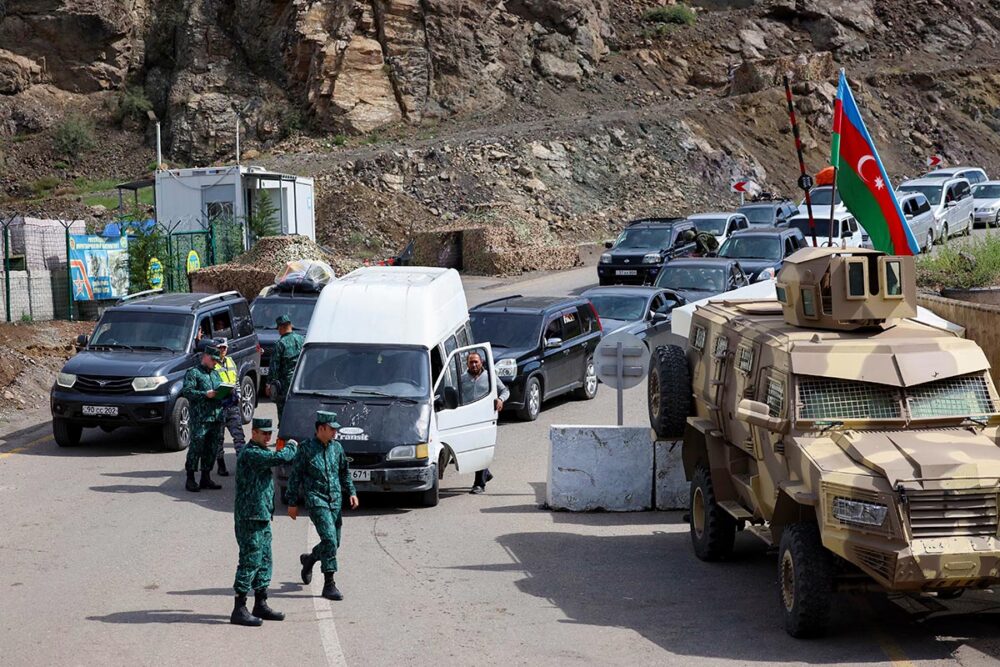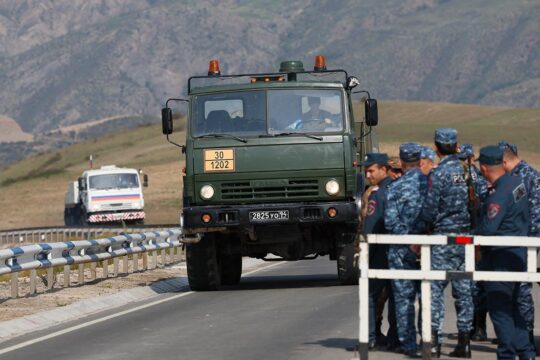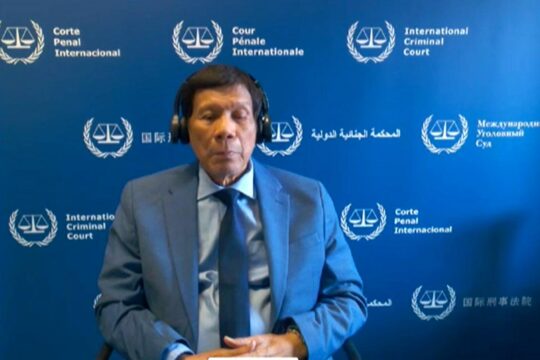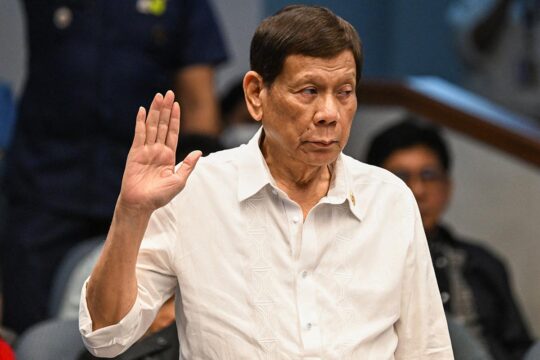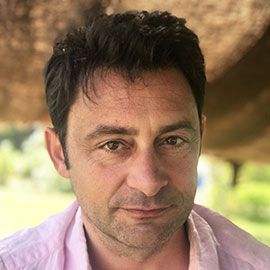After Azerbaijan’s flash invasion of Nagorno-Karabakh on September 19, 2023, Armenia ratified the Rome Statute. Was it a tough decision to make?
I will start from the very beginning. I had been at the Armenian Parliament for five years [2007-2012] and, being a member of the Standing Committee on Foreign Affairs, I was asking a question: why are we postponing ratification of the Rome Statute? I was in the opposition, and we couldn’t bring the issue to the agenda. I was told by colleagues from the Committee that this is a very sensitive treaty, we can’t ratify it because we had the First Nagorno Karabakh war [1988-1994], different accidents, war crimes. If Azerbaijan accuses Armenia, we are afraid that our heroes, who defended Nagorno-Karabakh, might be held accountable for crimes.
To be frank, I believed what they said. Then after 2022, when Azerbaijan launched another aggression on Armenia and committed many war crimes, we had a meeting with the Prime Minister [Nikol Pashinyan] and one of our regular meetings with other experts. A friend of mine, a partner of the Institute [of International and Security Affairs, see Bio], asked a simple question: “Mr. Pashinyan, now you understand that the next war will be for the territory of Armenia. So don’t you think we have to consider the ratification of the Rome Statute, because it can be a powerful tool to prevent a further attack?”
The National Security Council was ordered to examine the issue. But there was a problem because, under the previous government, the Constitutional Court decided that the ratification of the Rome Statute was against the Constitution of Armenia. It was in mid-2000. It was nonsense. The court believed that the Rome Statute would contradict the powers, enshrined in the Constitution, of the president. It found that, if the president wanted to pardon someone, then someone from the International Criminal Court [ICC] could come and say “no, you can’t pardon him”.
We understood that the ratification would be a very strong message that Aliyev [president of Azerbaijan] and even Putin [president of the Russian Federation], who stands behind Aliyev, might be held accountable. We were in 2022 when we realized that. Then it had to go through the Constitutional Court again. It took one more year. One of the reasons for this delay was that the Armenian government wanted to explain to Russia that “this is not about you guys, this is about Aliyev”. The ratification was coincident with the ICC warrants on Ukraine. Russia was manipulating and dropping proxies here. They were asking “why are you making that decision, because Putin will be facing problems while visiting Armenia, and still Russia is Armenia’s strategic ally”.
Of course, they knew that Armenia is in a very weak position, and that even with a great desire to arrest Putin, we are not in a situation to do so. But Russia had a second concern: Putin understood that, backed by the West, Armenia was closing the window for war by Aliyev and Azerbaijan. Aliyev would think twice about attacking Armenia, knowing that he might be punished. Putin saw Aliyev’s fear. That is why Putin was very, very, aggressive.
His third major concern was for the Russian military base here in Yerevan. Why? That’s also because of Ukraine, because part of the military is rotated and sometimes sent to Ukraine [where the ICC has opened an investigation]. Previously, it was 7,000 to 8,000 military. Now the number is lower, up to 3,500 military. We heard a lot of scenarios about their potential engagement in case of domestic turmoil in Armenia. So, that is why Putin was against that.
An NGO, the Armenian Center for Truth and Justice last April filed a communication to the ICC on crimes allegedly committed by Azerbaijan in Nagorno-Karabakh, which was backed by the first ICC prosecutor Luis Moreno Ocampo. But the Armenian government is still not officially filing nor backing any complaint against Azerbaijan before the Hague court. Why?
What we can say is that the government still envisages this instrument as a kind of preventive measure, not as a tool for transitional justice related to the crimes committed by Azerbaijan.
Due to the ongoing peace negotiations?
In part, yes. Peace negotiations started between Armenia and Azerbaijan, backed by the West -- the European Union and the United States -- in October 2022, right after an Azerbaijani attack. On October 7, Armenia and Azerbaijan were invited to a summit in Prague. The two countries agreed to recognize in principle each other’s territory, territorial integrity, to conduct the limitation and demarcation of the border. Basic principles.
But this was against Russia’s desire. And as Putin couldn’t encourage Aliyev to attack Armenia itself, Azerbaijan attacked Nagorno-Karabakh. The [19-20 September] 2023 attack was a punishment on us. Azerbaijan refused to attack Armenia only because the West was deterring it.
During these peace negotiations, one of the points was about submitting applications on war crimes to international courts. But now this provision has just been removed by Azerbaijan. Armenia said “if we can’t come to an agreement, then let’s remove what is not agreed, and sign it”. We agreed on 13 articles, among 17 articles, but Azerbaijan refused to sign.
You believe that in short term you solve some problem, but in in mid-term and in long term, it will be just very, very dangerous for Armenia. We have a problem of justice. And none of the solutions to the conflict can be sustainable if you are just bypassing the issue of justice, if you are ignoring the committed crimes, and no one is responsible. This can open a window for future crimes.
So, would you say that the deterrent effect of ratifying the Rome Statute didn’t work?
No, it worked. What I have described shows Azerbaijan’s fears. One of them is still the Rome Statute, and Pashinyan knows that this still works. Pashinyan is mostly focused on preventing a new large-scale war in the region, he’s still working on that and if he doesn’t make an application to the court, then you can conclude for sure that he believes the deterrent effect is still powerful.
Pashinyan doesn’t want to give Aliyev reasons to make the peace process fail. Because if Armenia sends an application to the ICC, then Aliyev will say you have no intention to establish peace, your goal is accusing Azerbaijan, revenge and so on. Pashinyan doesn’t want to give Azerbaijan a chance to reverse the process and legitimize new aggression.
It [the Rome Statute] was one of the three important tools that prevented a large-scale war. The second one was the deployment of the EU monitoring mission. The third one is the ongoing strong American engagement in the region with the parties. And I know that they have signalled several times in different ways that attacking Armenia is a red flag for Aliyev. So, it’s a group of tools.
What could the US do if there was an attack?
Nothing. Strong statements. And this is what the Armenian leadership knows as well. Armenia knows that we have some volume of American engagement. It might not be satisfactory for Armenians, of course. However, we know that this engagement keeps fragile stability and prevents Azerbaijan attacking. We don’t know what will happen if [former US president] Trump comes back to power. So, that’s about politics, international politics. One can understand that there is no agenda on justice because it’s too complicated to go further.
Why is there no justice even at national level, nor a truth and reparation mechanism for the victims of Nagorno-Karabakh?
The fact is that there is no justice, nothing has been done. After the revolution in 2018, we were really looking forward to it. After Pashinyan’s very populist and smart statements on holding accountable those who murdered, killed, grabbed and stole, I was expecting we would launch very tough, smart judicial reforms. But, of course, resistance was very strong.
Why have vetting, deep and comprehensive judicial reforms not taken place in Armenia? The first reason is the incompetence of the appointed ministers. They explained to Pashinyan that it cannot happen. They said “we can’t do vetting, we can’t clear the system, we cannot fire corrupt judges”. Second is resistance from the judges. They mobilized, especially the very corrupt ones, and sent letters to international organizations like the Council of Europe. We were told “guys, don’t make a revolution, just an evolution”. These obstacles, unfortunately, failed the process.
The only thing which was satisfactory was that at last the Ministry of Justice, the government, and the Supreme Court examined concrete cases, and, fortunately, corrupt judges were involved in that. Finally, some dozens left their positions. But it was not systemic. It was not part of a reform.
How does this prevent fully investigating within the domestic judicial system war crimes allegedly committed in Nagorno-Karabakh?
Opening investigations is a problem. From the very beginning, Armenia said that Nagorno-Karabakh is not Armenia and Nagorno-Karabakh people are not citizens of Armenia.
When Armenia ratified the Rome Statute, I remember one of the international experts said that this ratification would be useful for Nagorno-Karabakh, on the universal jurisdiction basis. But I’m not an international lawyer and specialist on that, and I can’t make any comment. There are a lot of people who came, and we say that we have around 150,000 refugees from Nagorno-Karabakh.
Pashinyan said in 2018 when he came to power that it’s up to Nagorno-Karabakh to decide for its future. And now he can’t go against his position, especially after the defeat and having been in this tricky negotiation process where Azerbaijan would like to use every opportunity to defect from it. I’m explaining why Armenia doesn’t do it at the governmental level, not to justify its position. For me, it’s not a right methodology to reach stability or some peace while ignoring the dimension of the truth. Not at all. The path is not stable.
Can you see a better path for Armenia?
This is challenging. If we had applications in the International Criminal Court, then tell me, what’s the guarantee that we would not be punished? The system doesn’t work properly, unfortunately. As I told you, I have serious disagreements with the methodology of the government, because it puts security concerns first, which is right, but ignores the elements of truth and justice. So I think it is less preventive than it could be. A combination of justice and a negotiation process, with strong backing from Western partners and clear arrangements, would be more effective, more preventive.
What can be the next step?
There will be no next step while we have these uncertainties regarding American and Georgian elections, and while no strategic decision from Armenia is taken. After Armenia witnessed Russia’s betrayal, the betrayal of CSTO [the Collective Security Treaty Organization, backed by Russia, that didn’t react to the invasion of Nagorno-Karabakh], Armenia discounted this issue in the Security Council on its possible withdrawal from the CSTO, and then what we heard from the West, hold on, “that’s not in your interest, because we are not going to protect you.” This is where we are.
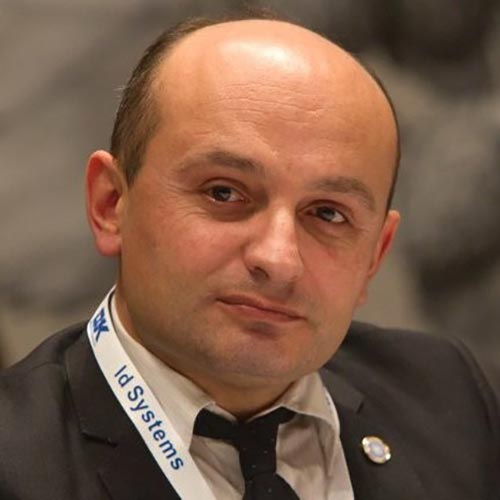
Styopa Safaryan is an Armenian senior analyst and politician. He is founder and head of research programmes at the Armenian Institute of International and Security Affairs, a think tank created in 2014. For five years, from 2007 to 2012, he was a member of the Parliament for Heritage, a pro-European opposition party. In December 2019, he was appointed chairman of the Public Council, a consultative body aimed at encouraging public participation in governance.


